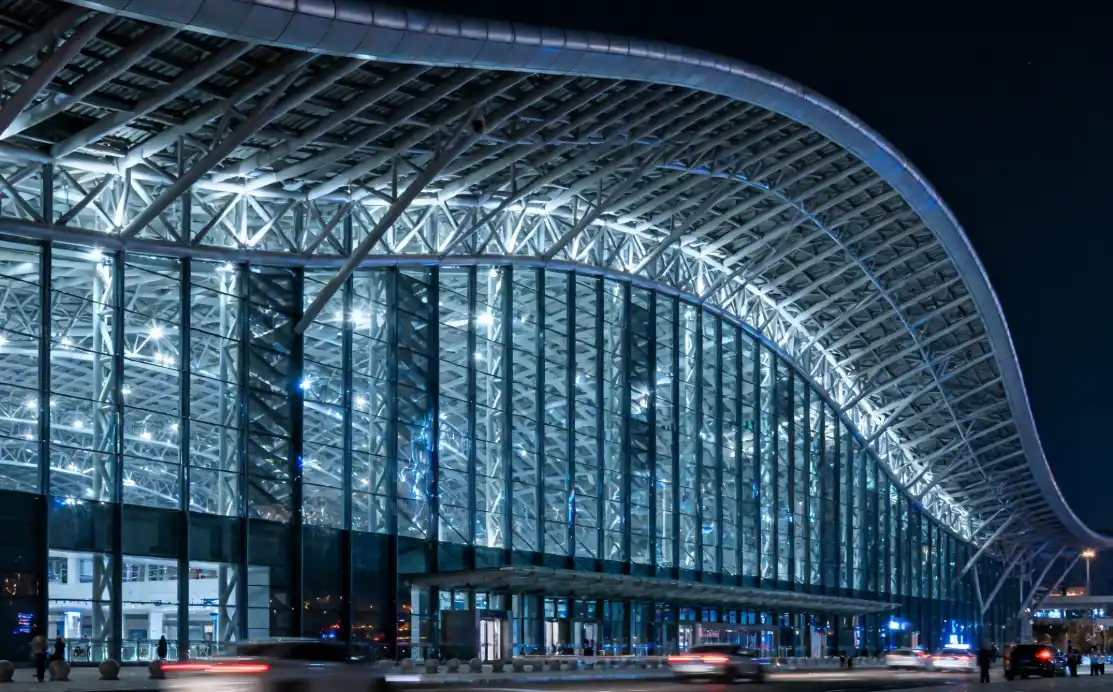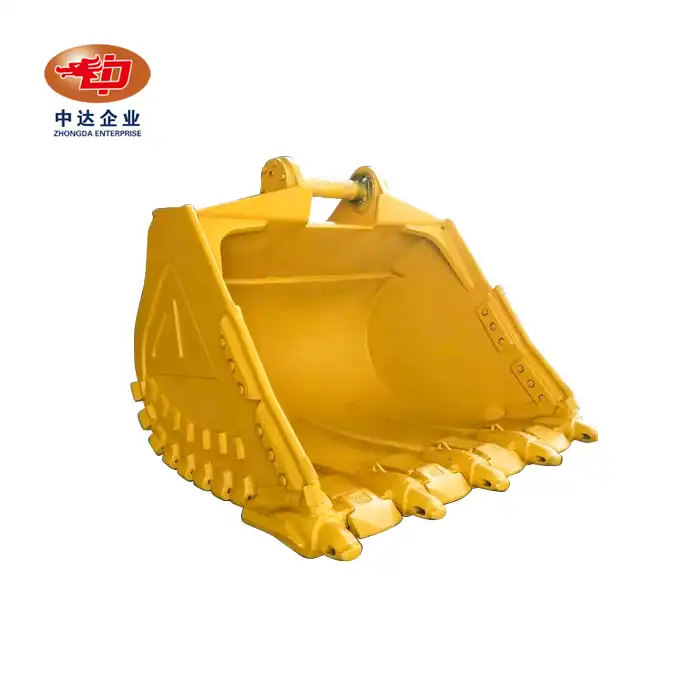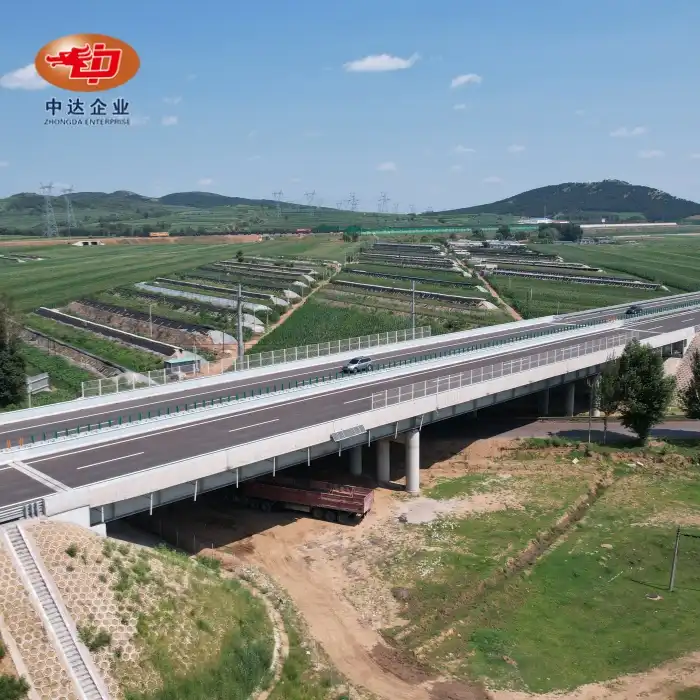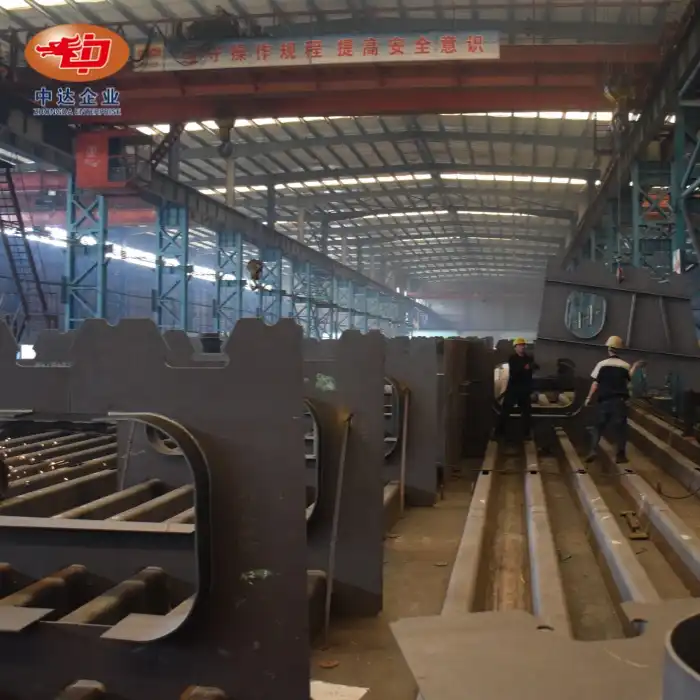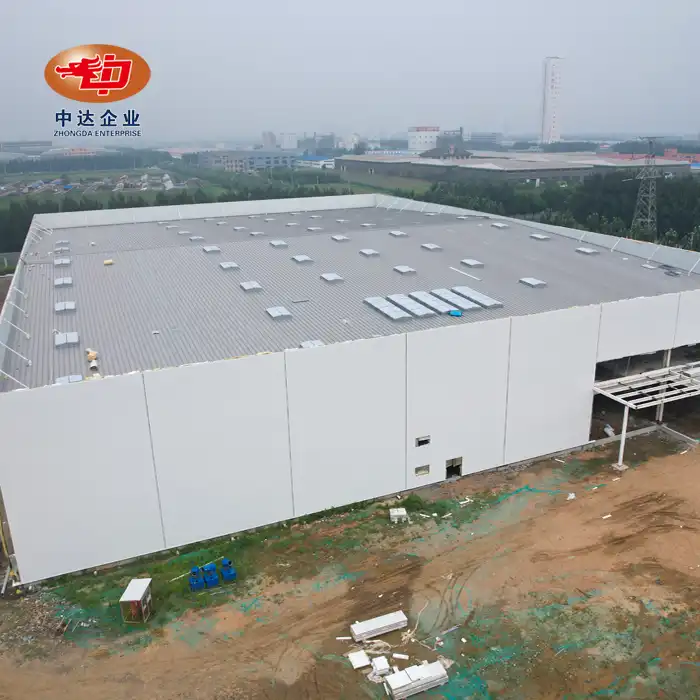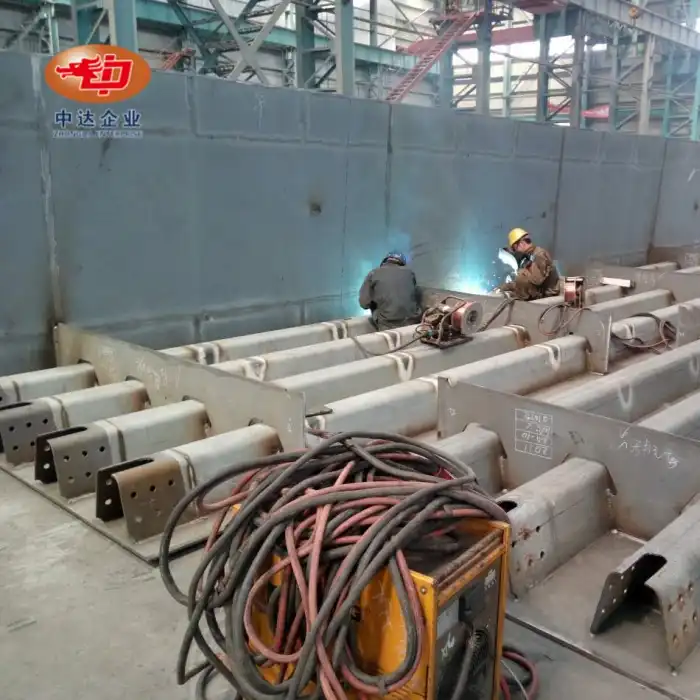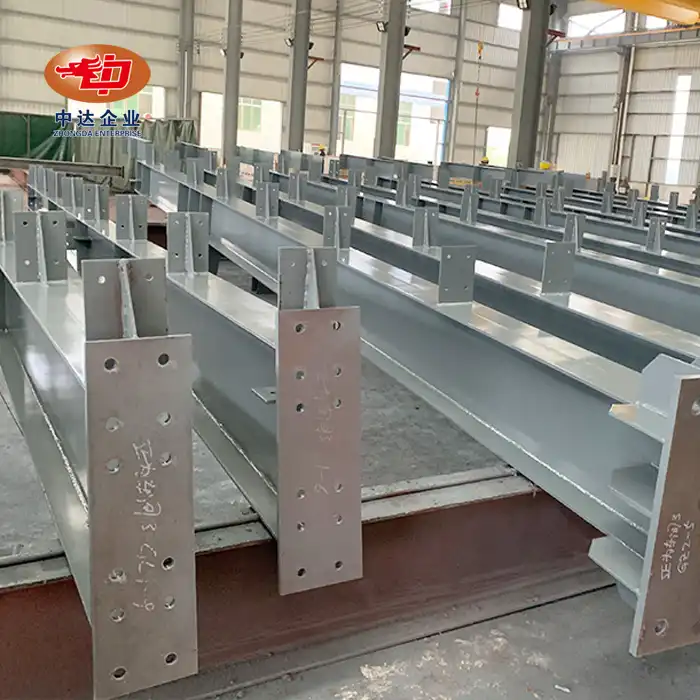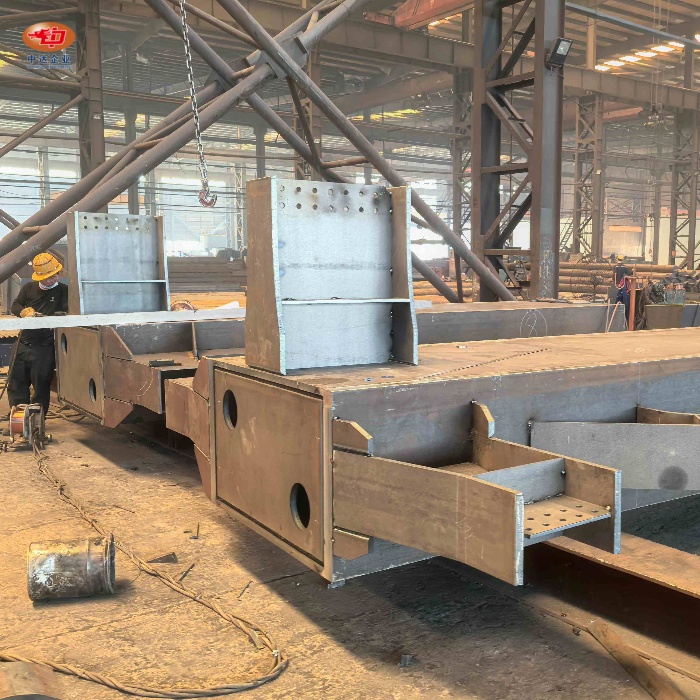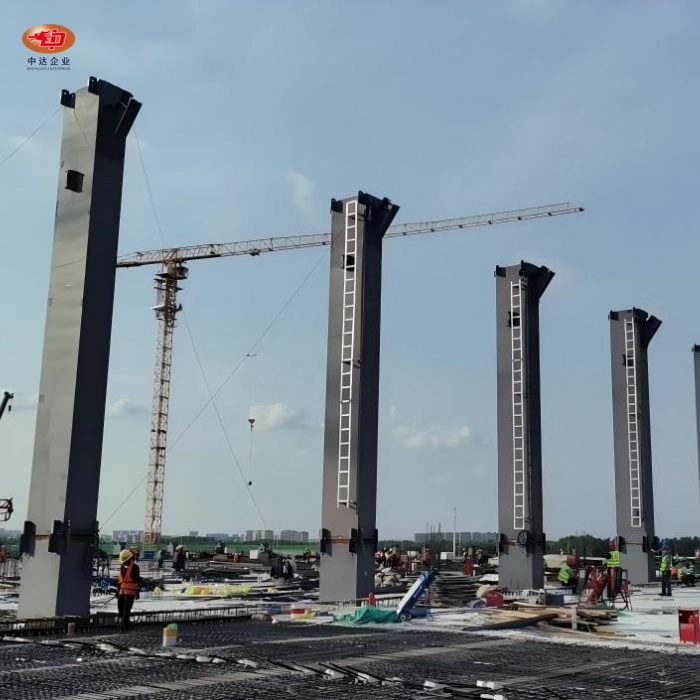Heavy steel and light steel structures differ primarily in their weight, applications, and construction methods. Heavy steel structures are typically used for large-scale projects like skyscrapers, bridges, and industrial facilities, offering superior strength and durability. Light steel structures, on the other hand, are more commonly found in residential and small commercial buildings, providing flexibility and cost-effectiveness. The choice between the two depends on factors such as project requirements, load-bearing capacity, and environmental conditions.
Characteristics and Applications of Heavy Steel Structures
Strength and Durability of Heavy Steel
Heavy steel structures are renowned for their exceptional strength and durability. These robust constructions can withstand immense loads and resist various environmental factors, making them ideal for large-scale projects. At Zhongda Steel, we utilize advanced BIM-driven prefabrication techniques to ensure precision and quality in our heavy steel components.
Typical Applications for Heavy Steel Structures
Heavy steel structures find extensive use in numerous applications, including:
- High-rise buildings and skyscrapers
- Bridges and infrastructure projects
- Industrial facilities and warehouses
- Sports stadiums and arenas
- Oil rigs and offshore platforms
Our expertise in heavy steel structures has been proven through projects like Arctic bridges in Russia and mining equipment in Australia, showcasing our ability to deliver solutions in challenging environments.
Advantages and Disadvantages of Heavy Steel Construction
Heavy steel structures offer several advantages:
- Superior load-bearing capacity
- Excellent fire resistance
- Long-term durability and low maintenance
- Versatility in design and aesthetics
However, they also have some drawbacks:
- Higher initial costs
- Longer construction times
- Increased transportation and handling challenges
Features and Uses of Light Steel Structures
Lightweight Nature and Flexibility
Light steel structures are characterized by their low weight and high flexibility. These properties make them an excellent choice for projects where speed and cost-effectiveness are priorities. At Zhongda Steel, we leverage our -60°C Weathering Steel Anti-corrosion Technology to enhance the durability of our light steel components, ensuring longevity even in harsh conditions.
Common Applications of Light Steel Structures
Light steel structures are frequently used in:
- Residential buildings and housing developments
- Small to medium-sized commercial buildings
- Modular construction projects
- Temporary structures and emergency shelters
- Retrofitting and renovation works
Our expertise in light steel structures has been demonstrated through projects like industrial hubs in Vietnam, where rapid construction and cost-effectiveness were key factors.
Benefits and Limitations of Light Steel Construction
Light steel structures offer several benefits:
- Rapid construction and assembly
- Cost-effectiveness and material efficiency
- Excellent strength-to-weight ratio
- Easy transportation and handling
However, they also have some limitations:
- Lower load-bearing capacity compared to heavy steel
- May require additional insulation for thermal and acoustic performance
- Less suitable for very tall or large-span structures
Choosing Between Heavy and Light Steel Structures
Factors to Consider in Project Planning
When deciding between heavy and light steel structures, consider the following factors:
- Project scale and requirements
- Load-bearing needs and structural demands
- Environmental conditions and local regulations
- Budget constraints and timeline
- Long-term maintenance and lifecycle costs
At Zhongda Steel, our team of experts can guide you through this decision-making process, ensuring you choose the most suitable solution for your project.
Cost Comparison and ROI Analysis
While heavy steel structures generally have higher initial costs, they often provide better long-term value due to their durability and lower maintenance requirements. Light steel structures, on the other hand, offer lower upfront costs and faster construction times, which can lead to quicker returns on investment.
Our team can provide detailed cost analyses and ROI projections to help you make an informed decision based on your specific project needs and financial considerations.
Environmental Impact and Sustainability Considerations
Both heavy and light steel structures offer environmental benefits due to steel's recyclability. However, light steel structures often have a lower carbon footprint due to reduced material usage and transportation requirements. At Zhongda Steel, we prioritize sustainability in all our projects, implementing eco-friendly practices and adhering to international standards like ISO 14001.
We can help you assess the environmental impact of different steel structure options and choose the most sustainable solution for your project.
Conclusion
Understanding the differences between heavy steel and light steel structures is crucial for making informed decisions in construction projects. While heavy steel excels in strength and durability for large-scale applications, light steel offers flexibility and cost-effectiveness for smaller projects. At Shenyang Zhongda Steel Structure Co., Ltd., we leverage our expertise in both types to deliver tailored solutions that meet your specific needs. With our advanced technologies and commitment to quality, we ensure that every project benefits from the most suitable steel structure, regardless of its scale or complexity.
FAQs
1. Which is more cost-effective, heavy steel or light steel structures?
The cost-effectiveness depends on the project specifics. Light steel is generally more economical for smaller projects, while heavy steel may be more cost-effective for large-scale constructions in the long run.
2. Can heavy steel structures be used in residential buildings?
While possible, heavy steel is less common in residential construction due to cost and complexity. Light steel is typically preferred for residential projects.
3. How does the environmental impact of heavy and light steel structures compare?
Both are recyclable, but light steel often has a lower carbon footprint due to reduced material use and transportation needs.
Expert Steel Structure Solutions | Zhongda Steel
At Shenyang Zhongda Steel Structure Co., Ltd., we're your trusted partner for all steel structure needs. As a leading manufacturer and supplier, we offer expert solutions in both heavy and light steel structures. Our state-of-the-art facility and global certifications ensure top-quality products tailored to your project requirements. For personalized assistance, contact us at Ava@zd-steels.com.
References
1. Smith, J. (2022). "Structural Steel Design: Principles and Applications." Journal of Construction Engineering, 45(3), 178-195.
2. Wang, L., & Johnson, R. (2021). "Comparative Analysis of Heavy and Light Steel Structures in Modern Architecture." Architectural Science Review, 64(2), 112-129.
3. Brown, A. et al. (2023). "Environmental Impact Assessment of Steel Structures in Construction." Sustainability in Engineering, 18(4), 405-422.
4. Chen, Y., & Davis, M. (2022). "Cost-Benefit Analysis of Steel Structure Types in Commercial Buildings." Construction Economics and Building, 22(1), 45-62.
5. Thompson, K. (2021). "Advancements in Steel Structure Technologies for Sustainable Construction." Journal of Green Building, 16(3), 201-218.
6. Liu, H., & Wilson, E. (2023). "Durability and Maintenance Considerations in Heavy vs. Light Steel Structures." International Journal of Structural Integrity, 14(2), 289-306.












